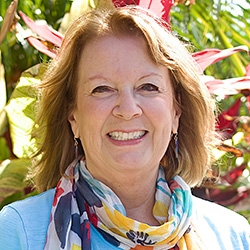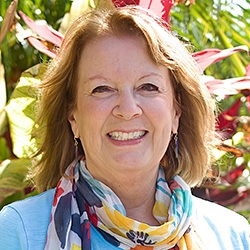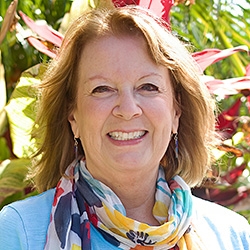

Search Results: giving
-
- Learn how every decision we make perpetuates the status quo or brings us closer to the vision of a world that works for all
- Find out about our big brain capacity to integrate needs, impacts, and resources to make decisions that work for everyone
- Understand why power differences interfere with collaborative decisions and what can be done about it
- Discover tools that support collaboration in larger groups and organizations— even across power differences!
-
Trainer Tip: All people long for understanding. It is such an easy thing to give, yet rarely do we see its importance in creating peace of mind.
-
Trainer Tip: The very process of giving someone space to talk about their issue without our judgment, to be truly understood by us, and to be deeply heard is very healing, enough so that most people will organically find their own creative ways to resolve their issues. Rely on this process and you will lose all desire to fix people’s problems. Try this out today.
-
Empathy is a form of attunement. Empathy is giving your compassionate curiosity by guessing another’s feelings and needs. Consider how you live or relate to each of these 12 essential aspects of empathy. Some of them mention how we can offer empathy without abandoning ourselves, how empathy isn't always the best response, and how "Empathy can be offered when you disagree with another’s opinion, memory, or perspective."
-
Giving feedback across a differences in culture, race, and power isn't something that we have to do -- but we can choose to do it for our own liberation, if we want. And if we choose that path, impact delivered well can invite caring for all needs and increase capacity to learn. This is the exacting, rigorous work of speaking about impact without attributing anything to the person whose actions resulted in the impact. Read on for part 1 of 2.
-
Notice situations where you're attending to another and giving up on your needs with resentment or a sense of submitting. You can also watch for “shoulds,” obligation, and black-and-white thinking around the support you offer. Is there a sense that if you don't carry out a particular action something bad will happen? If so, identify the needs at hand and brainstorm a variety of strategies to meet them.
-
Eric offers some tips for nurturing and affirming ourselves as a daily practice.
-
NVC practice is based on several key assumptions and intentions. When we live based on these assumptions and intentions, self-connection and connection with others become increasingly possible and easy, helping us contribute to a world where everyone’s needs are attended to peacefully.
-
-
Trainer Tip: Notice when you create stories about why something occurred. Commit to only observing facts. Then make decisions that are likely to give you relief and joy. For instance, if someone is late you may think that she’s inconsiderate or values another thing more than you. Instead, observe what you know—that she's later than agreed. From there, you could call her to find out what’s going on.
-
-
What are the most powerful things I can do to build an inspired relationship? I answered the question with romantic relationships in mind; however, I believe the answer below applies to all important relationships.
-
- Explore what makes the capacity lens radical and practical
- Understand the complexities of how capacity and willingness interface
- Mourn capacity limits within and around us without jumping to conclusions
- Orient to agreements as behavioral anchoring in support of your commitments
-
Trainer Tip: See imperfect NVC moments as learning opportunities, not failures.
-
How we deal with “no” is a litmus test of our state of consciousness around power. Listen as John works with participants as they learn to give and receive a "no" from a consciousness of interpersonal connection.
-
In life, relationships, and organizations, authenticity is the bedrock of effectiveness. It can give rise to effective dialogues, information flow, intimacy, accountability, decision making and follow through. NVC can give us more tools to live with rigor around our authenticity...
-
Inspired by a talk given by Marshall Rosenberg, Jim offers an interactive exploration of powerful strategies for making NVC an integral part of your everyday life.
-
This telecourse recording gives NVC Practitioners a guided tour of Ken Wilber’s work, a meta-theory (theory of theories) that includes as much knowledge and wisdom from as many sources as possible. You will explore how NVC and Integral Framework mesh, overlap and complement each other.
-
Society gives us short-sighted explanations about human nature, life and what’s (un)changeable. The coronavirus pandemic is disrupting that explanation. Our current social order upholds impoverishment, police brutality, and is leading us towards our extinction. Change begins with people mobilizing resources towards a vision that holds systemic care for all, plus engages shared risk and collective action towards that vision.
-
Kathleen Macferran explores how deep listening can open doors and transform lives.

Quick Links
Subscription Preferences
Stay In Touch!
Looking for ways to keep up with NVC Academy news, get special offers, free resources, or words of inspiration? Here are five ways to stay engaged:


















